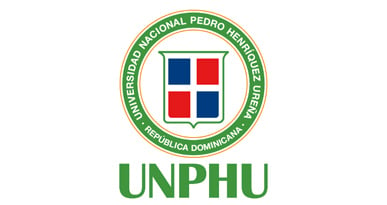Mostrar el registro sencillo del ítem
Prehospital sepsis project (PSP): knowledge and attitudes of united states advanced out-of-hospital care providers.
| dc.contributor.author | Báez, Amado Alejandro | |
| dc.contributor.author | Hanudel, Priscilla | |
| dc.contributor.author | Pérez, María Teresa | |
| dc.contributor.author | Giraldez, Ediza M. | |
| dc.contributor.author | Wilcox, Susan R. | |
| dc.date.accessioned | 2018-12-10T22:36:32Z | |
| dc.date.available | 2018-12-10T22:36:32Z | |
| dc.date.issued | 2013 | |
| dc.identifier.citation | Báez A. A., Hanudel P., Pérez M.T., Giraldez E. M., Wilcox S. R. Prehospital sepsis project (PSP): knowledge and attitudes of united states advanced out-of-hospital care providers. Prehosp Disaster Med. 2013 ; 28 (2) :104-106. | en |
| dc.identifier.issn | 1049023X | |
| dc.identifier.uri | https://www.cambridge.org/core/journals/prehospital-and-disaster-medicine/article/prehospital-sepsis-project-psp-knowledge-and-attitudes-of-united-states-advanced-outofhospital-care-providers/3D9FA994F69735A3A3658CB766691F42 | |
| dc.description.abstract | Introduction severe sepsis and septic shock are common and often fatal medical problems. The Prehospital Sepsis Project is a multifaceted study that aims to improve the out-of-hospital care of patients with sepsis by means of education and enhancement of skills. The objective of this Project was to assess the knowledge and attitudes in the principles of diagnosis and management of sepsis in a cohort of United States out-of-hospital care providers. Methods This was cross-sectional study. A 15-item survey was administered via the Web and e-mailed to multiple emergency medical services list-servers. The evaluation consisted of four clinical scenarios as well as questions on the basics of sepsis. For intra-rater reliability, the first and the fourth scenarios were identical. Chi-square and Fisher's Exact testing were used to assess associations. Relative risk (RR) was used for strength of association. Statistical significance was set at.05. Results A total of 226 advanced EMS providers participated with a 85.4% (n = 193) completion rate, consisting of a 30.7% rural, 32.3% urban, and 37.0% suburban mix; 82.4% were paramedics and 72.5% had worked in EMS >10 years. Only 57 (29.5%) participants scored both of the duplicate scenarios correctly, and only 19 of the 193 (9.8%) responded to all scenarios correctly. Level of training was not a predictor of correctly scoring scenarios (P =.71, RR = 1.25, 95% CI = 0.39-4.01), nor was years of service (P =.11, RR = 1.64, 95% CI = 0.16-1.21). Conclusions Poor understanding of the principles of diagnosis and management of sepsis was observed in this cohort, suggesting the need for enhancement of education. Survey items will be used to develop a focused, interactive Web-based learning program. Limitations include potential for self-selection and data accuracy. | en |
| dc.language.iso | en | en |
| dc.publisher | Prehospital and Disaster Medicine | en |
| dc.relation.ispartofseries | 28 (2); | |
| dc.rights | Attribution-NonCommercial-NoDerivatives 4.0 Internacional | * |
| dc.rights.uri | http://creativecommons.org/licenses/by-nc-nd/4.0/ | * |
| dc.subject | Servicios médicos de urgencia | es_ES |
| dc.subject | Estados Unidos | es_ES |
| dc.subject | Sepsis | es_ES |
| dc.subject | Choque séptico | es_ES |
| dc.title | Prehospital sepsis project (PSP): knowledge and attitudes of united states advanced out-of-hospital care providers. | en |
| dc.type | Article | en |



